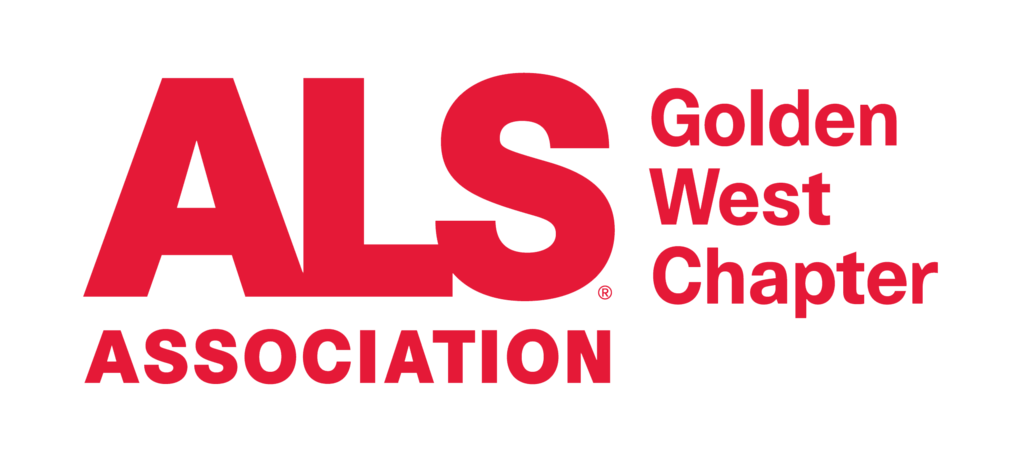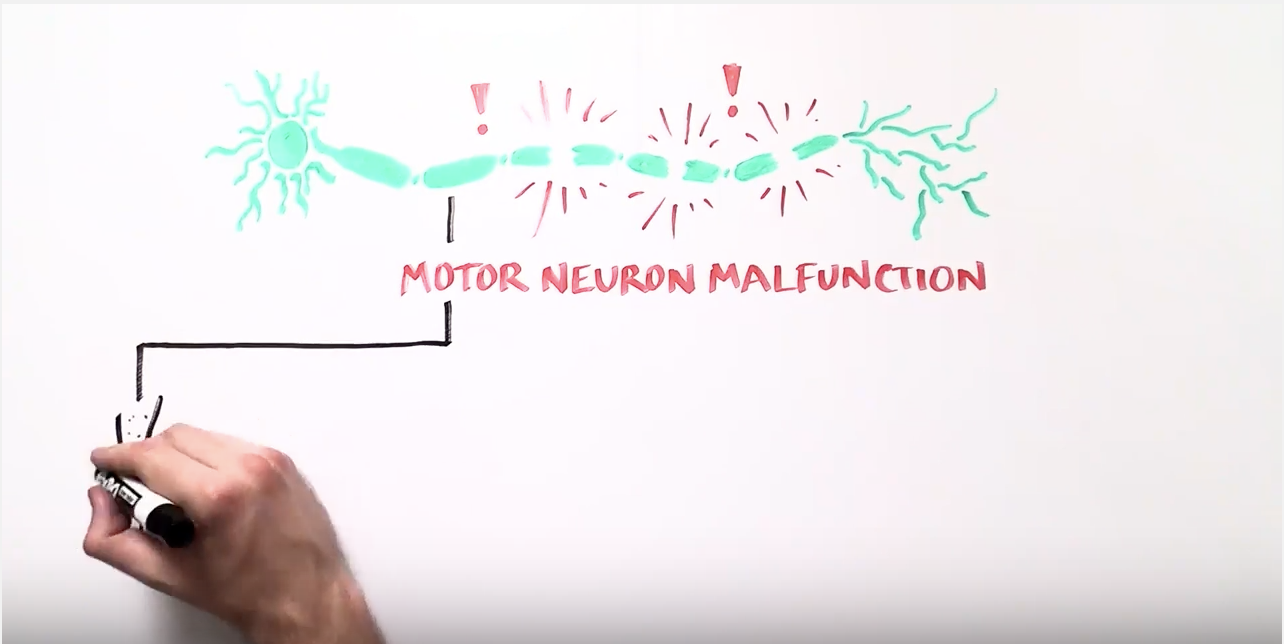About
ALS causes the motor neurons responsible for voluntary movement and muscle control to progressively degenerate, and eventually die (motor neurons communicate from the brain to the spinal cord and from the spinal cord to the muscles throughout the body). When motor neurons are destroyed, the brain can no longer initiate and control muscle movement, and people with ALS eventually lose the ability to speak, eat, move and ultimately, breathe.
- There are two different types of ALS:
- Sporadic: Makes up 90-95% of all cases of ALS cases in the U.S. It may affect anyone, without any family history of the disease.
- Familial: Makes up 5-10% of all ALS cases in the U.S. It is the inherited form of the disease.
- ALS usually affects people between the ages of 40 and 70, but it can appear at any age.
- More than 5,000 people are diagnosed with ALS every year, and it is expected that every 90 minutes someone is diagnosed or passes away from the disease.
- The average life expectancy of a person with ALS is 2-5 years after diagnosis. However, half of all people diagnosed with ALS live at least 3 years after diagnosis, a quarter of people with ALS live 5 years after diagnosis and up to 10% of people with ALS will live more than 10 years after diagnosis.
How Stem Cell Research Can be Used to Treat or Study ALS
1. Stem cell research has been instrumental in developing methods for understanding the origin of ALS. Using skin or blood cells from ALS patients, scientists can generate “ALS models in a dish” and study the cellular and molecular players that cause motor neuron loss.
2. The “disease in a dish” model has also enabled scientists to perform drug screening for potential medications/therapies that may mitigate the disease.
3. Stem cells could also be used as a potential therapeutic. Direct delivery of stem cell populations could either replace the lost/damaged motor neurons or change the environment within the brain and the spinal cord to protect existing neurons from dying.
CIRM’s Progress: Selected Research Highlights
1. In a Phase 1/2 clinical trial, researchers at Cedars Sinai Medical Center are investigating ways to protect surviving neurons in people with ALS. They have engineered a special population of stem cells that will become astrocytes — the brain cells that protect nerves and provide them with food. Since astrocytes are damaged after ALS, by replacing this cell population long-term, the motor neurons may be protected, thus slowing down the progression of the disease.
2. In a Phase 3 clinical trial, researchers at BrainStorm Cell Therapeutics are using mesenchymal stem cells “boosted with protective factors” to support and protect neurons. These cells are taken from ALS patients’ own bone marrow, modified with the “boosting capacity”, and then returned to the patient’s spinal cord. The Phase 2 results of this study are promising and suggest increased motor neuron protection after cell transplantation.





